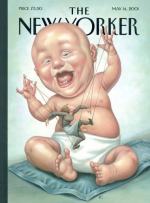|
This section contains 312 words (approx. 1 page at 400 words per page) |

|
Village
The village symbolizes the past. By returning to the village, Fletcher believes that he can reclaim his former reputation and glory. However, the village proves disinterested in Fletcher, and determined to destroy him. The author uses this physical locale as a symbolic representation of Fletcher's encounters with his past life and self.
Cottage
The Petersons' cottage symbolizes ownership. As soon as the old man opens the door, Fletcher enters boldly without regard for the cottage's inhabitants. Then, when he remembers he once lived there, he treats the space as if it were his own, ignoring the current owners and lunging towards his old bed. Fletcher's interactions in and with the space illustrate his arrogance and ego.
Field
The field Fletcher and Roger arrive at towards the story's end symbolizes confrontation. While facing the field, Roger suggests that he is ready to confront and forget the past...
|
This section contains 312 words (approx. 1 page at 400 words per page) |

|




